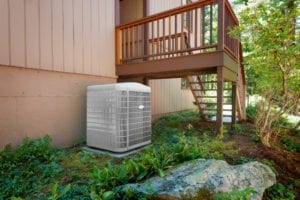
How to Extend the Life of Your Heating System
A well-functioning heating system is not just a comfort but a necessity in many homes. However, like any other household appliance, it requires proper care and maintenance to ensure its longevity. In this blog, we’ll explore practical steps you can take to extend the life of your heating system, ensuring it runs efficiently for years to come.
Understanding Your Heating System
Before diving into maintenance tips, it’s important to understand the type of heating system you have. Common types include furnaces, boilers, heat pumps, and central heating systems. Each system has its unique maintenance needs, but there are general practices that apply to all. A crucial aspect of extending the life of your heating system is comprehending its type and functionality. Let’s delve into the common types of heating systems found in homes, exploring how they work and their maintenance needs.
Furnaces
Furnaces are among the most common heating systems. They operate by burning fuel, typically gas or oil, to generate heat. This warm air is then circulated throughout your home via a network of ducts. Key components of a furnace include the burner, heat exchanger, blower, and flue. Maintenance of a furnace primarily revolves around regular filter changes, ensuring the burner is clean, and the blower motor functions correctly.
Boilers
Boilers, on the other hand, heat water to provide either hot water or steam for heating. This heated water or steam circulates through pipes to radiators or underfloor heating systems. A boiler’s major components are the burner, heat exchanger, combustion chamber, and a system for circulating the hot water or steam. Maintenance activities include checking for leaks, maintaining the proper water level, and ensuring the circulator pump is in good working order.
Heat Pumps
Heat pumps are versatile, functioning as both heating and cooling systems. They transfer heat from the outside air or ground into your home and can reverse the process for cooling. The critical components of a heat pump include an outdoor unit with a compressor and condenser, and an indoor air handler. Maintenance focuses on ensuring the refrigerant level is correct, cleaning the coils, and checking the air handler.
Central Heating Systems
Central heating systems, powered by a furnace or heat pump, distribute heat via a system of ducts and vents. They typically consist of a heat source, ductwork, and control systems like thermostats. The maintenance of central heating systems involves regular cleaning of ducts, changing filters, and ensuring the thermostat functions properly.

Understanding the efficiency of your heating system is also key. Efficiency in furnaces and boilers is measured by the Annual Fuel Utilization Efficiency (AFUE) rating, while for heat pumps, it’s the Heating Seasonal Performance Factor (HSPF). Higher ratings in both indicate more efficient systems.
Signs that your heating system may not be functioning efficiently include higher than usual energy bills, inconsistent heating across different rooms, and an increase in the frequency of repairs. These signs indicate that it might be time for a professional assessment of your system.
Regular Maintenance Checks
Regular maintenance is the lifeline of any heating system. It not only ensures the efficient functioning of your system but also significantly extends its life. Let’s explore what regular maintenance entails, its importance, and how to choose the right heating contractor for these crucial checks.
What Does Regular Maintenance Include?
Regular maintenance of a heating system involves a series of checks and tasks:
- Inspection: A thorough examination of the entire system to identify any signs of wear or potential issues.
- Cleaning: Removing any dust, dirt, or debris that has accumulated in the system, particularly in areas like burners, filters, and ducts.
- Lubrication: Ensuring that all moving parts are adequately lubricated to prevent friction and wear.
- Filter Replacement: Changing or cleaning air filters regularly to maintain air quality and system efficiency.
- System Testing: Running the system to check for any operational issues and to ensure that it is running smoothly and effectively.
The Importance of Regular Maintenance
Regular maintenance checks are critical for several reasons:
- Efficiency: Well-maintained heating systems operate more efficiently, using less energy to heat your home, which can lead to lower energy bills.
- Safety: Regular checks can identify safety hazards such as gas leaks or electrical issues, ensuring the safety of your home and family.
- Preventing Breakdowns: By identifying and addressing small issues early, regular maintenance can prevent more significant, costly breakdowns in the future.
- Extending System Life: Consistent maintenance can significantly extend the lifespan of your heating system, making the most of your investment.
Selecting a Heating Contractor for Regular Checks
Choosing the right contractor for regular maintenance checks is as crucial as the maintenance itself. Here’s how to ensure you select the best professional for the job:
- Look for Licensed Professionals: Ensure the contractor is licensed to perform heating system maintenance. A licensed professional will have the necessary training and knowledge.
- Check Reviews and References: Look for reviews or ask for references to gauge the reliability and quality of their work.
- Experience with Your System Type: Choose a contractor who has experience with your specific type of heating system.
- Consider their Availability and Responsiveness: Regular maintenance means establishing an ongoing relationship. Choose a contractor who is responsive and available to meet your maintenance schedule.
- Ask About Maintenance Plans: Some contractors offer maintenance plans, which can be a convenient and cost-effective way to ensure regular checks.

Regular maintenance is not just a routine check; it’s a crucial investment in the efficiency, safety, and longevity of your heating system. By understanding what maintenance entails and choosing the right professional for the job, you can ensure that your heating system remains in peak condition, providing warmth and comfort to your home for years to come.
Upgrading Thermostat Controls
The thermostat is the control center of your home heating system, and upgrading it can bring significant improvements in efficiency, convenience, and cost savings. Let’s delve into the advantages of modern thermostat controls and what to consider when upgrading.
The Evolution of Thermostats
Over the years, thermostats have evolved from simple manual devices to sophisticated, programmable, and smart units. This evolution has made it easier for homeowners to manage their heating systems more effectively.
Benefits of Programmable and Smart Thermostats
Enhanced Efficiency
Programmable and smart thermostats allow you to set specific temperatures for different times of the day. For instance, you can program the thermostat to lower the heat when you’re not home and to warm up the house before you return. This targeted heating ensures energy is not wasted, thereby increasing the overall efficiency of your system.
Cost Savings
By optimizing your heating schedule, these advanced thermostats can lead to significant savings on your energy bills. The ability to heat your home only when needed can reduce unnecessary energy usage, translating to lower costs.
Convenience and Control
Smart thermostats offer the ultimate in convenience, with features like remote control via smartphone apps. This means you can adjust your home’s temperature from anywhere, ensuring you always return to a comfortably heated home.

Choosing the Right Thermostat for Your Home
Compatibility with Your Heating System
Ensure the new thermostat is compatible with your heating system. Some advanced thermostats may not work with older systems, so it’s crucial to check compatibility before making a purchase.
Features and Functionality
Consider the features you need. While some homeowners might appreciate a thermostat with all the latest features, others might prefer something simpler. Decide what features are essential for your lifestyle, such as programmability, Wi-Fi connectivity, or compatibility with smart home systems.
Installation and Setup
Think about whether you will need professional help to install and set up the new thermostat or if it’s something you can do yourself. Some smart thermostats may require professional installation, especially if your home’s wiring needs to be updated.
Impact on Heating System Efficiency
Upgrading your thermostat can have a profound impact on the efficiency of your heating system. By allowing for more precise control over your home’s heating, you not only enhance comfort but also reduce the strain on your heating system, potentially extending its lifespan.
Upgrading your thermostat controls is a smart move for any homeowner looking to enhance their heating system’s efficiency and convenience. With the variety of options available, from programmable to smart thermostats, you can find a solution that fits your needs and lifestyle, bringing modern efficiency and control to your home heating system.

Improving Home Insulation to Reduce Strain on Your Heating System
A well-insulated home is akin to wrapping yourself in a cozy blanket on a chilly day. It’s not just about comfort; it’s about efficiency. By improving your home’s insulation, you can significantly reduce the strain on your heating system, leading to enhanced longevity and performance. Let’s explore how you can achieve this and why it matters.
The Role of Insulation in Home Heating
Insulation acts as a barrier to heat loss, keeping the warmth inside your home. This is crucial during colder months when your heating system works overtime to maintain a comfortable temperature. Proper insulation means less heat escapes, and your system doesn’t have to work as hard to keep up, reducing wear and tear.
Practical Tips for Enhancing Home Insulation
Seal Windows and Doors
Start with the basics: check for drafts around windows and doors. Even small leaks can lead to significant heat loss. Use weather stripping or caulking to seal these gaps, an easy and cost-effective way to improve insulation.
Upgrade Wall and Attic Insulation
If your home is older, it might be worth investing in new insulation for your walls and attic. Materials like fiberglass, cellulose, or spray foam can provide a substantial barrier against heat loss.
Insulate Your Basement and Crawl Spaces
Don’t overlook areas like basements and crawl spaces. Insulating these areas can prevent cold floors and help maintain a more consistent temperature throughout your home.
Use Curtains and Blinds
Window treatments are more than just decorative. Heavy curtains or blinds can add an extra layer of insulation, keeping the warmth in and the cold out.

The Impact of Improved Insulation on Your Heating System
Reduced Energy Consumption
With better insulation, your heating system doesn’t need to work as hard to heat your home, leading to reduced energy consumption. This not only lowers your energy bills but also minimizes the environmental impact.
Extended System Life
A heating system that runs less frequently experiences less wear and tear. By improving your home’s insulation, you can extend the lifespan of your heating system, avoiding premature replacements and costly repairs.
Enhanced Comfort
Better insulation leads to a more evenly heated home, eliminating cold spots and fluctuations in temperature. This means you can enjoy a comfortable living environment without constantly adjusting the thermostat.
Improving your home’s insulation is a smart move for any homeowner. It’s an investment in comfort, efficiency, and the longevity of your heating system. By taking practical steps to enhance insulation, you can ensure your heating system works optimally, providing warmth and comfort while keeping costs and environmental impact low.
Proper Usage of Your Heating System
Using your heating system correctly is as important as maintaining it. Proper usage can significantly contribute to the longevity and efficiency of the system. Let’s delve into best practices that ensure your heating system operates optimally, providing warmth while preserving its lifespan.
Understanding Your System’s Capacity
Every heating system has a specific capacity designed to meet the heating demands of a certain space size. Overloading your system by expecting it to heat a larger area than it’s designed for can lead to excessive wear and tear. Ensure your heating system is appropriately sized for your home.
Setting a Reasonable Temperature
While it’s tempting to crank up the heat during colder months, setting a reasonably warm temperature can be more beneficial for your system.
- Optimal Temperature Setting: Experts often recommend setting your thermostat to around 68°F (20°C) during the day. This temperature is comfortable for most people and is energy-efficient.
- Nighttime Settings: Lower the temperature at night or when you’re not home. Dropping the temperature by 7-10 degrees for eight hours a day can save up to 10% a year on heating.

Avoiding Frequent Thermostat Adjustments
Constantly adjusting the thermostat can cause your heating system to cycle on and off more frequently, which can be hard on the system and decrease its efficiency. Try to find a comfortable temperature setting and stick to it.
Utilizing Programmable Thermostats
If you have a programmable thermostat, take advantage of its features. Set it to automatically lower the temperature when you’re away or asleep and to warm up the house before you wake up or return home.
Keeping Vents and Radiators Clear
Ensure that vents, radiators, or heating registers are not blocked by furniture, rugs, or drapes. Blocked vents can restrict airflow, causing the system to work harder and reducing its efficiency.
Being Mindful of Windows and Doors
Keep windows and doors closed to prevent cold drafts from entering and warm air from escaping. Consider using draft excluders or weather stripping for added insulation.
Using Ceiling Fans Wisely
Ceiling fans can be used to improve air circulation. In the winter, set your ceiling fan to run clockwise at a low speed. This will create an updraft and circulate warm air around the room.
Proper usage of your heating system is key to maintaining its longevity and efficiency. By understanding and adhering to these best practices, you can ensure that your heating system serves you well through many winters.

Addressing Heating System Repairs Promptly
A key aspect of maintaining your heating system’s longevity and efficiency is addressing repairs promptly. Ignoring or delaying repairs can lead to more significant problems down the line, potentially resulting in costly replacements and reduced system efficiency. Here’s why timely repairs are crucial and how to approach them.
Recognizing the Signs of Needed Repairs
Being aware of the early signs that your heating system needs repair can prevent minor issues from escalating. Some common indicators include:
- Unusual Noises: Rattling, banging, or whistling noises can signal problems within the system.
- Inconsistent Heating: If some rooms are warmer than others, or if the heat output is insufficient, this could indicate an issue.
- Increased Energy Bills: A sudden spike in energy bills can be a sign that your heating system is working harder than usual, indicating potential problems.
- Frequent Cycling: If your system is constantly turning on and off, it may need attention.
- Odd Smells: Unusual odors coming from your heating system can be a warning sign of a malfunction.
The Importance of Timely Repairs
- Preventing Further Damage: Addressing issues as soon as they arise can prevent them from worsening, which could lead to more extensive and expensive repairs.
- Maintaining Efficiency: A well-maintained heating system runs more efficiently, consuming less energy and reducing utility costs.
- Ensuring Safety: Timely repairs can also prevent safety hazards, particularly with systems that use gas or oil.
Choosing the Right Professional for Repairs
When it comes to repairs, it’s important to choose a qualified and experienced professional. Here’s what to consider:
- Check Credentials: Ensure the technician is licensed and certified to work on heating systems.
- Experience Matters: Look for professionals who have experience with your particular type of heating system.
- Read Reviews: Check online reviews or ask for references to gauge the quality of their service.
- Get a Written Estimate: Before any work begins, ask for a detailed estimate to avoid unexpected costs.

Regular Inspections and Maintenance Contracts
Consider setting up regular inspections and a maintenance contract with a reliable heating service provider. Regular inspections can catch potential issues early, and a maintenance contract can provide peace of mind, knowing that your system is being looked after by professionals.
Taking care of your heating system is a proactive way to ensure comfort, efficiency, and longevity. Regular maintenance, proper usage, timely repairs, and considering upgrades when necessary are all steps that can help extend the life of your heating system. Don’t hesitate to take the steps necessary for your home’s heating system. 5 Estimates is prepared to guide you with expert advice and free, reliable heating contractor quotes.


Leave a Reply